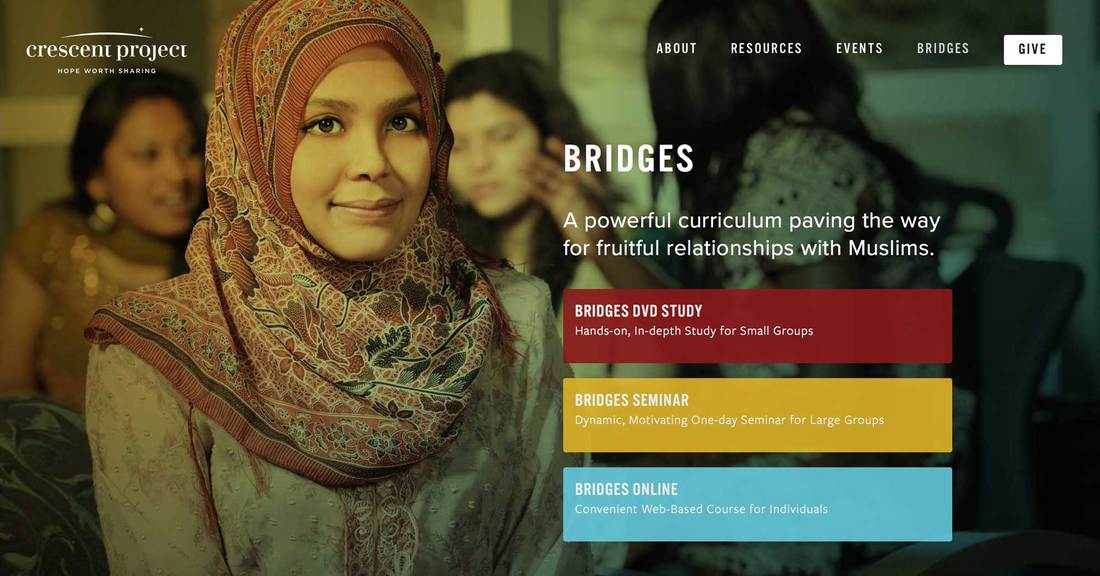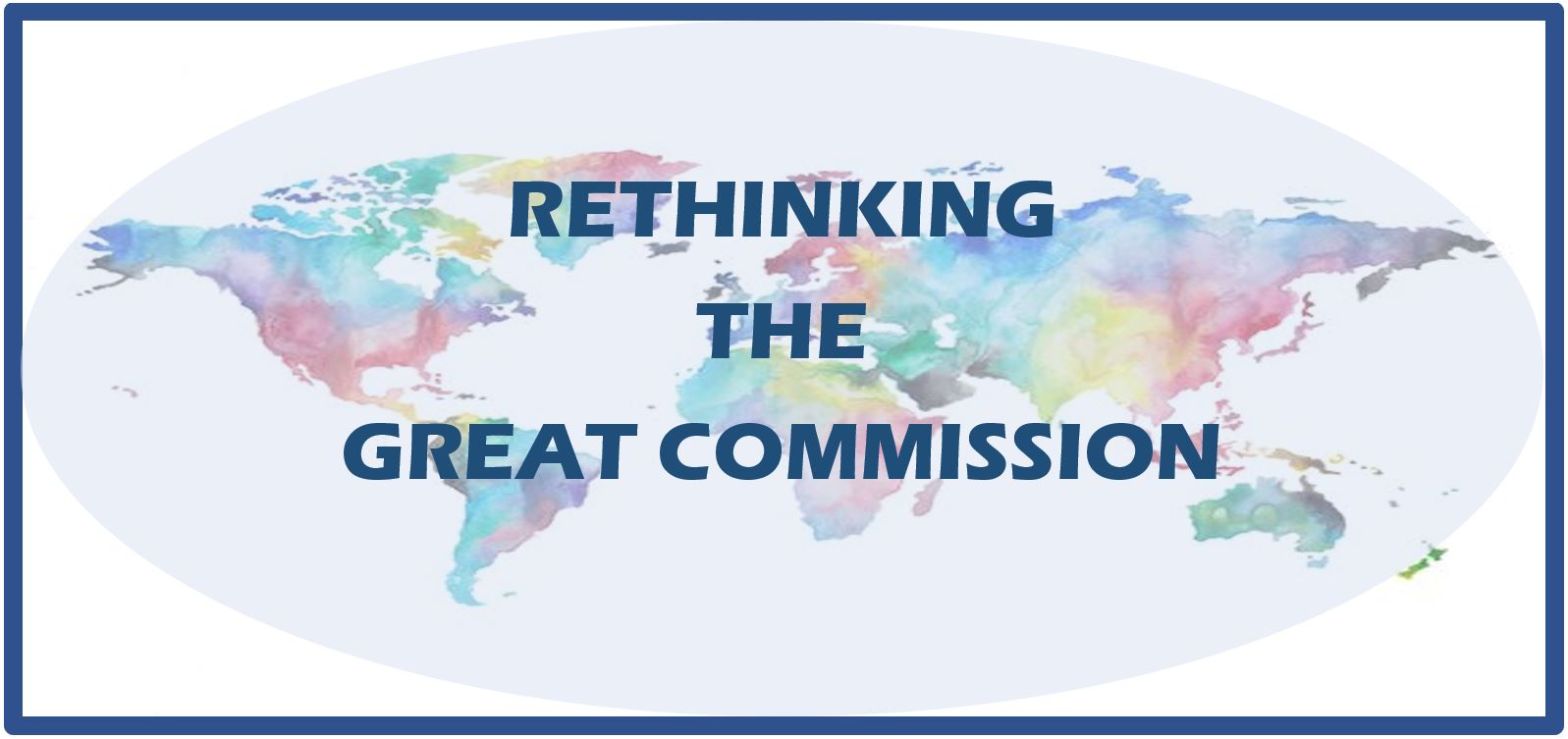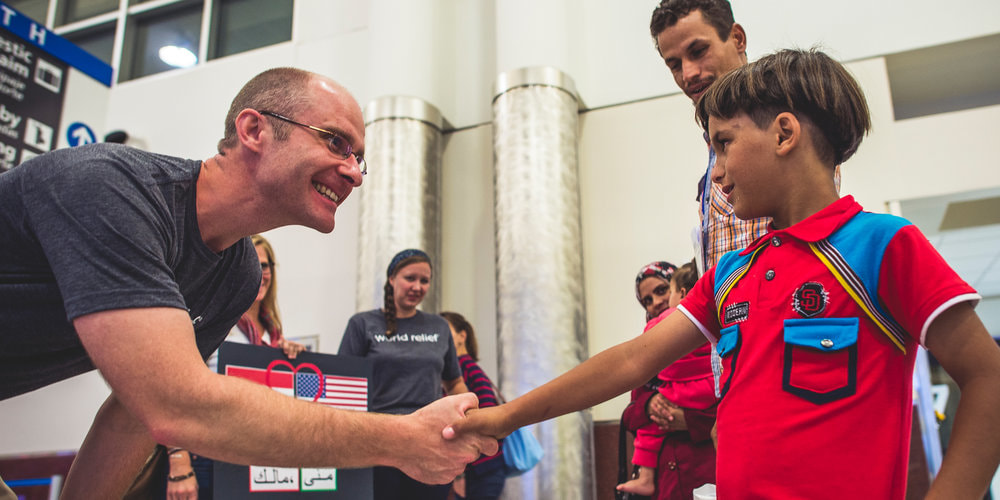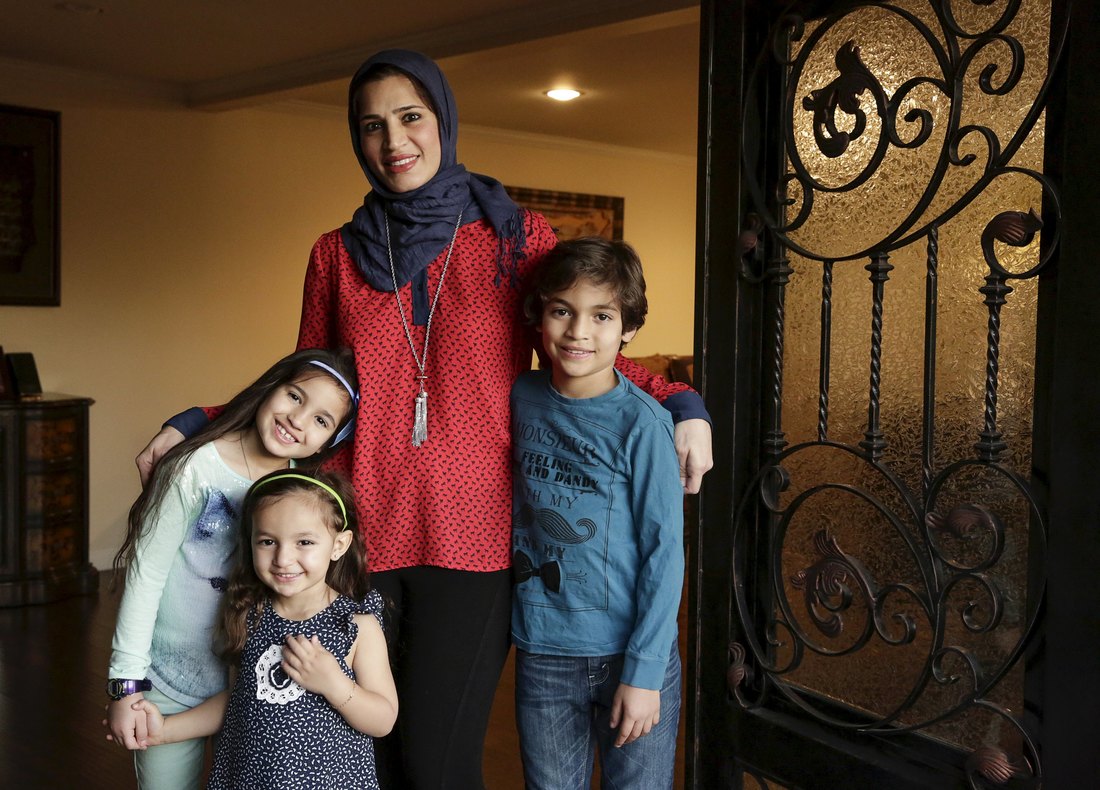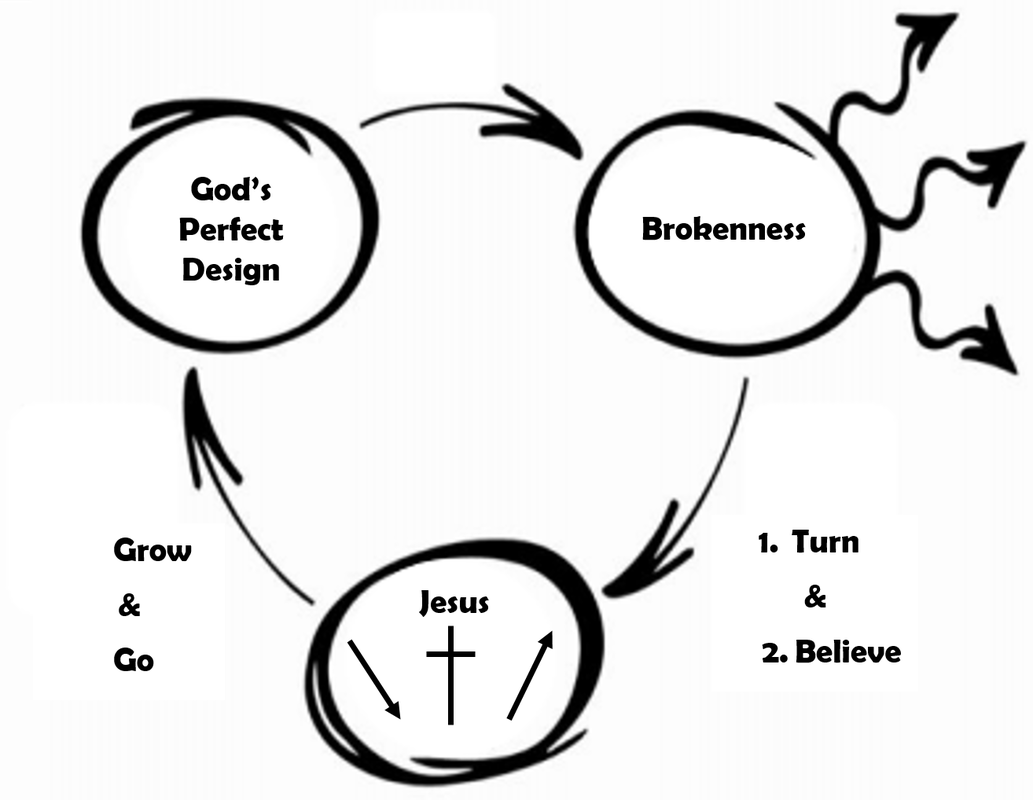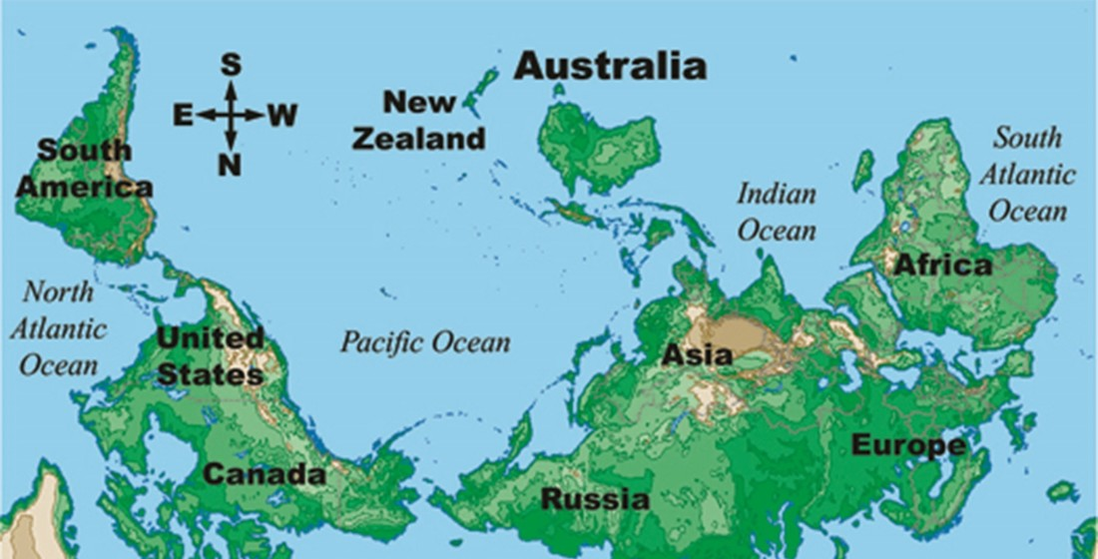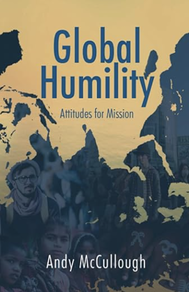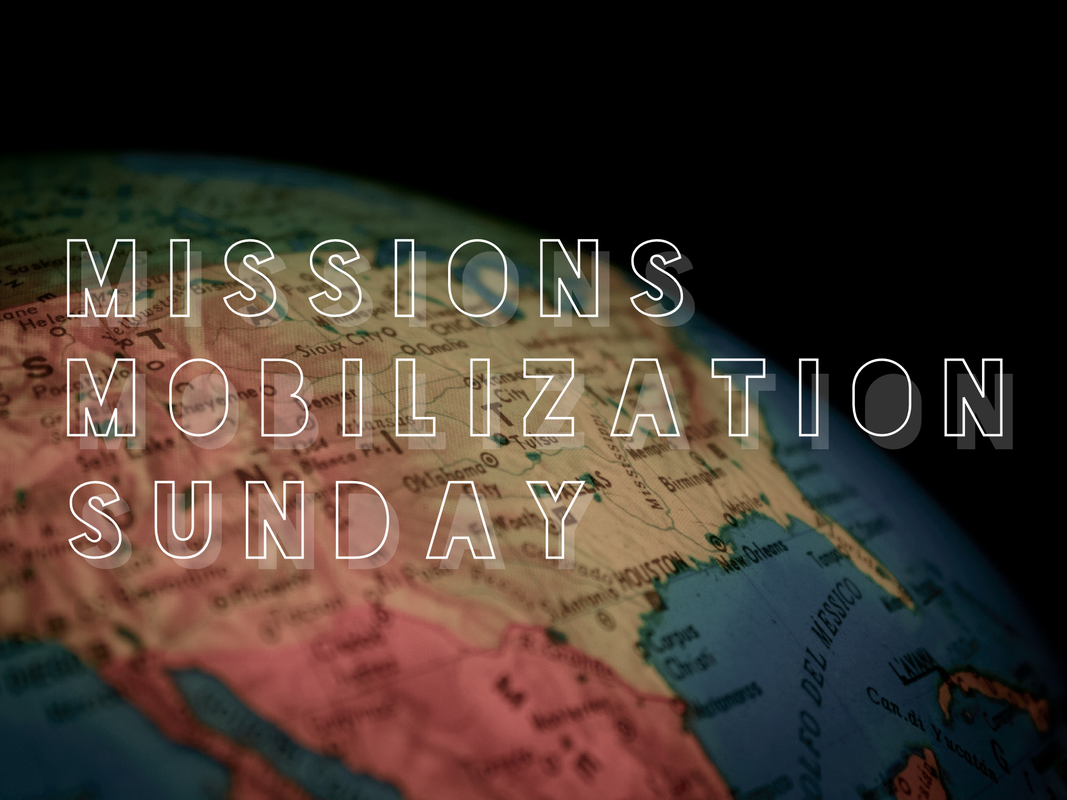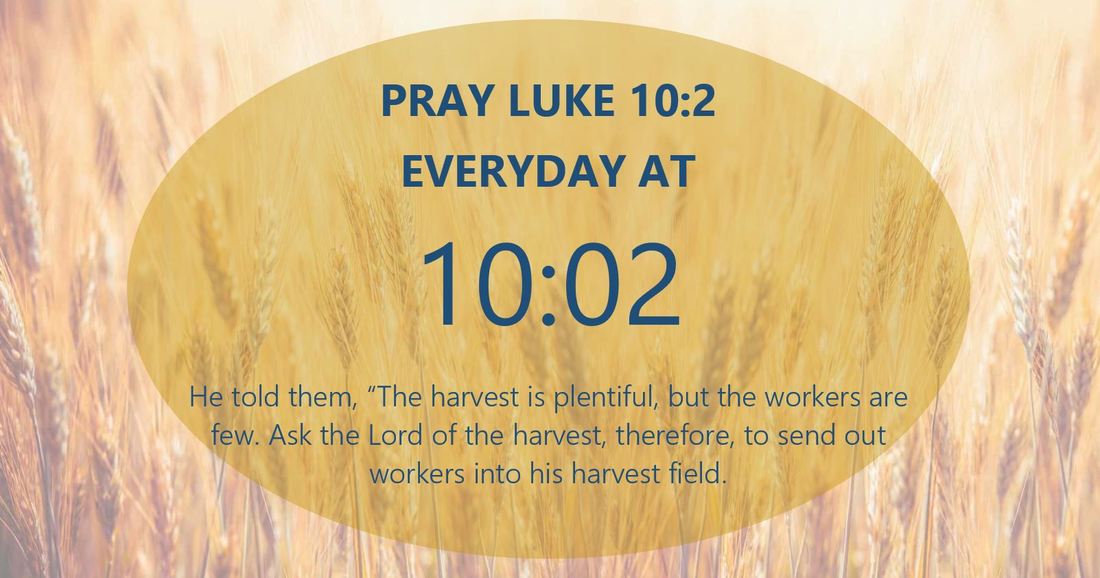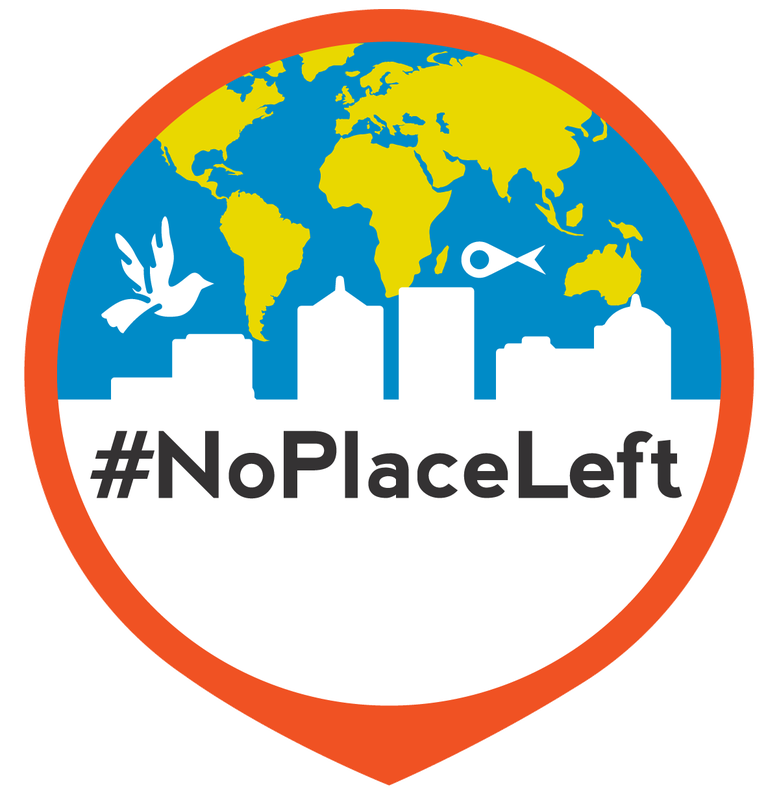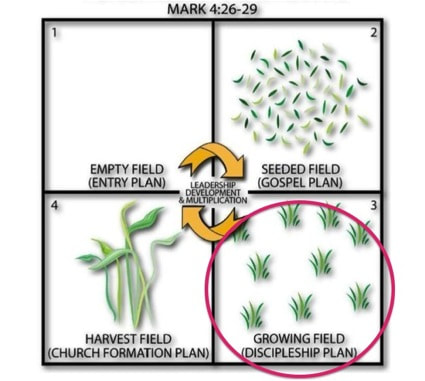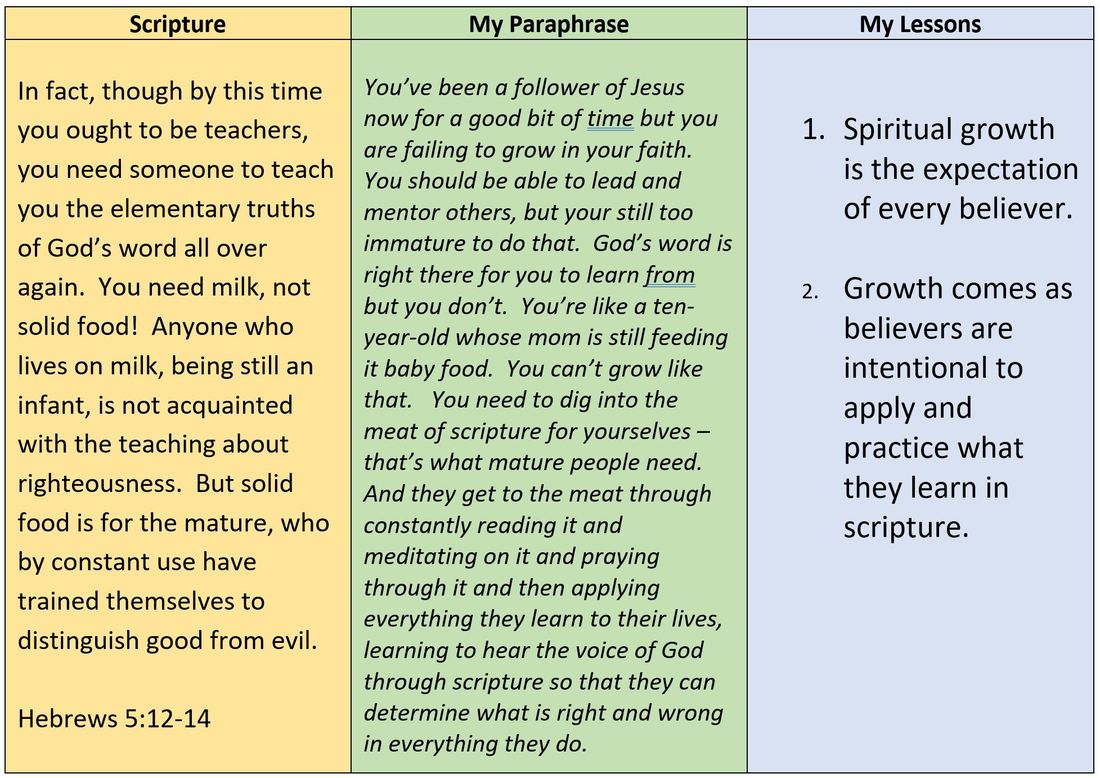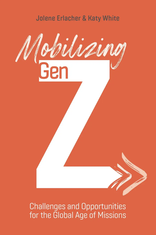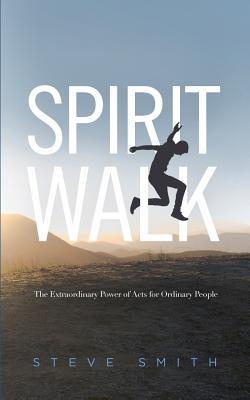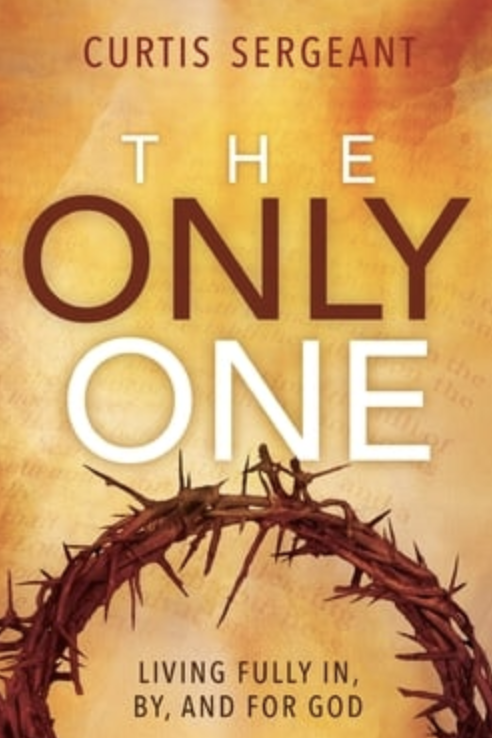|
When my family and I returned from Turkey in 2012, one of the biggest challenges we faced was the level of fear and misunderstanding that we saw in well meaning Christians toward Muslims. We had spent nearly five years building relationships with Muslims who had become our dear friends and it broke our hearts to think that fear, misunderstanding and misinformation were paralyzing the church and preventing them from even saying hello to Muslims here in the U.S. let alone telling them good news about Jesus Christ. In all honesty, my first response was one of bitterness toward the church but God in his grace soon moved me to compassion and understanding. Our friends didn’t share our experience of loving relationships with wonderful Muslim neighbors and friends. It was at about that same time that a friend told me about the Bridges Study. The Bridges Study is a six lesson DVD study that can be used with small groups or Sunday school classes. As I’ve helped groups go through the study, I’ve seen it break down fear and remove misunderstanding as participants grow closer to Jesus as they step out in faith. Crescent Project founder, Fouad Masri, hosts the study which includes great teaching, inspiring testimonies and actionable next steps. I think every church should take their members through the Bridges Study. Here are five reasons why.
The Bridges Study will help you learn about Islam and Muslims through a Biblical/Missional Lens. Everyone is learning something about Islam and about Muslims. The source of that learning is generally the media or media personalities and the motivations behind those talking is often quite different. Some just want everyone to get along. Others want to warn us of hidden plots to take over America. The Bridges Study however presents great information in six thirty minute lessons through a Biblical lens that believes that God wants to see all Muslims repent and believe and follow Jesus. Participants often report that the Bridges Study lowered their fear, increased their understanding and gave them a heart to begin to pray regularly for Muslims to come to faith and look for opportunities to build relationships. The Bridges Study will strengthen the faith of those who go through it. Whenever we step outside of our comfort zones, we have an opportunity to be stretched and see our faith grow. One of the surprising benefits of working to mobilize the church to share the love of Jesus with Muslims was that as people began to explore learning about Islam and about how to share their faith with Muslims, their own faith began to grow. I’ve seen many who have taken the Bridges Study and met a Muslim suddenly reading their Bibles far more regularly because their new Muslim friends ask them questions they’ve never been asked before. Their prayer lives increase. As God begins to use them, their faith grows. The Bridges Study will help those who participate to be Christ’s ambassadors. 2 Corinthians 5:20 says that we are therefore Christ’s ambassadors, as though God were making his appeal through us. One of the cornerstone lessons of the Bridges Study is the four attitudes of an ambassador. It is a lesson that is crucial to understand if we are to share Jesus love with Muslims and as so many participants point out, with anyone. The Bridges Study will invite participants to step out in risk taking obedience to Jesus together with others. After each lesson, there is an action step to take. These are designed to get you out of the living room and into a relationship with a new friend. The goal is to give your new Muslim friend an opportunity to respond to the gospel and be connected with a true follower of Christ. It also gives you and your group an opportunity to step out in risk taking obedience to Jesus together. It gives you the chance to run after the things of God together! There is very little that is more exhilarating than step out in faith with a group of friends for the glory of God! Passive faith becomes active. Shallow fellowship become deep. And God will use your group to share the gospel with Muslims in your community. You’ll be running together! The Bridges Study will help you to be a part of seeing Muslims come to faith in Christ and worship Him. Many of the people I work with struggle to believe that God could use them to introduce a Muslim to a life transforming relationship with Jesus. But as participants begin to step out in faith, God begins to use them, to give them opportunities to share and to love well. Jesus tells us that the harvest is plentiful but the workers are few and then he commands us to pray to the Lord of the harvest to send out more workers into his harvest fields. The fields are his and he wants to use you to see Muslims come to faith in Christ. He has used people just like you all across the world. The Bridges Study was created first and foremost to help mobilize more harvesters into the harvest among Muslims. Start a Bridges Study today and join God in his miraculous movement in the Muslim world. CLICK HERE TO LEARN MORE ABOUT THE BRIDGES STUDY Click here to watch Session 4 to get of feel for the study After participating in an Everywhere to Everywhere (E2E) training weekend, many ask the question, "What next?" The Bridges Study can be a great next step as you return to your home church. Invite others to join you in exploring how God might want to use you - and your church - to reach the Muslim world. CLICK HERE TO LEARN MORE ABOUT E2E
0 Comments
In 1792, William Carey published his rather long titled manifesto of missions, An Inquiry into the Obligations of Christians to use Means for the Conversion of the Heathens. The title reflects the times in which he lived both in its length and in its use of the word "heathen" and yet, its publication along with his subsequent founding of the Baptist Missionary Society later that same year began what we now know as the modern missions movement. Many were to follow in Cary’s footsteps, taking the gospel from the West where it had been firmly established for over 1,000 years to the East and South where it had yet to be shared. In 1900 Africa was less than 10% Christian.(1) In 1950, 100 years after Hudson Taylor arrived, the population of Christians in China was a mere 3.4 million out of a total population of 550 million. This was the reality in which the paradigm of modern missions developed. It was the need of the hour. The vast majority of those whose faith in Christ compelled them to take the great commission seriously lived in the West and so, through much sacrifice, they supported and sent their sons and daughters to what David Bryant calls “the widest end of the gap.” The world in which they lived dictated that they sail slowly to these lands, that they send occasional correspondence back to home churches which remained far away, across a vast expanse of land and ocean. The work of missions then was “over there” and it was left to those who felt called to go. For the rest of us, “over here”, well we did our best to support their work, to pray, to give to the missionaries and occasionally, to go ourselves. But mostly we got on with the work of doing church in places where we were the majority culture. And the paradigm through which we view the great commission increasingly became something for someone else to do. Doug Birdsall, quoted in the book Western Christians in Global Mission says, “The Great Commission is for every church in every culture in every generation. There are no exclusions. But . . . every church in every culture in every generation must determine the way in which they respond to this responsibility -- in a way that is appropriate to time and context." For those in William Carey’s and Hudson Taylor’s time, sending missionaries overseas was the only responsible response to the vast numbers of people living outside of any real access to the gospel. The only way to bring the gospel to China was to go there. Those generations in those churches determined the best way to complete the great commission was to send missionaries. The problem is that this paradigm for how to complete the great commission became the status quo and each new generation of churches simply continued to do what previous generations had done. They improved upon the mistakes of previous generations thankfully, but the basic idea of mission stayed the same and the church by and large, remained on the outside looking in. In the last twenty years however, the context of our world has changed in unprecedented ways. Those changes demand that this generation reassess the church’s role in Jesus commission to His church as we see it in Matthew 28:18-20. We cannot continue to merely do what previous generations in the West have done. To do so would be irresponsible! Unprecedented Change When Hudson Taylor went to China in the 1850s, his friends and sending churches back in England knew very little about China. None of them had ever met anyone from China. It was quite literally on the other side of a very big world. Today, we can learn anything we want about China with a click of a button. Nearly everything we own was made in China and with very little effort, we can befriend a Chinese student who wants to practice English online. Over 350,000 Chinese are studying in U.S. universities and there are Chinese restaurants in most every town. Because of entrepreneurial opportunities, every city in America has Chinese residents. And it’s not just China. Sioux Falls - a small Midwestern city in South Dakota of just under 200,000, is home to over 140 different languages from countries all over the world. A vast majority of the workforce at John Morrell - Sioux Falls’ third largest employer - is foreign born. Just up the road at South Dakota State University in Brookings, students from all over the world are working toward both bachelors and advanced degrees. Globalization is a reality that has moved forward at a lightning quick pace. Driven by technological advances that have connected our world like never before, by the rise of English as a global trade language and by the greatest migrations of people the world has ever known, globalization is changing the context of the world in which we live. And it is this changing context that demands we rethink the role local churches and individual Christians play in in the great commission. From one man he made all the nations, that they should inhabit the whole earth; and he marked out their appointed times in history and the boundaries of their lands. God did this so that they would seek him and perhaps reach out for him and find him, though he is not far from any one of us. God is on the move. While the kingdom of America is changing and those changes won’t be without their challenges, the Kingdom of God is not in trouble. God’s promise to Abraham in Genesis 12 was that all the peoples of the earth will be blessed through you. God is keen to keep His promises and the witness of the Old and the New Testament alike is of a God who is passionate that all the nations of the earth - all people groups - would know His glory and be reconciled to Him. And God intends to see that vision come to fruition, to see the day when great multitudes that no one can count, from every nation, tribe, people and language, are standing before the throne and before the Lamb. They will be wearing white robes and will be holding palm branches in their hands. And they will cry out in a loud voice: “Salvation belongs to our God, who sits on the throne, and to the Lamb. (Revelation 7:9-10)” That is the mission of God! It is what the narrative of scripture is all about. Christopher Wright has said that “it’s not so much that the church has a mission as it is that the mission of God has a church.” Globalization is real. It will have tangible effects on our lives. It will present very real challenges. And yet with it come new and amazing opportunities for the church to be a part of the great commission in ways that were not possible even 20 years ago. But the question is, as always, how will we respond? Unprecedented Opportunities Global migration is increasing rapidly. According to PEW Research, in 2015, nearly 250 million people lived outside of the their country of birth. This is three times more than in 1960. This is due in part to the global refugee crisis but also to the rise of a global middle class. More and more people across the globe are simply able to immigrate to wealthier countries. They come for education, for a better job or to avoid some of the inherent challenges of making a life in a developing country. A friend of mine immigrated with his parents to Canada when he was fourteen. His father was an entrepreneur and had started several successful businesses in Western China but was continually frustrated by the communist government bureaucracy and so decided he’d try his luck in Canada. My friend was Hui Chinese, a Muslim minority people. He had been raised in a Muslim home and educated in Chinese schools where he was indoctrinated with atheistic teaching. His chance of meeting a Christian or hearing the gospel in his hometown in China was slim to none. Global migration trends mean that the chances are increasingly likely that you will have a neighbor, a co-worker or perhaps a doctor who comes from another country. Your children will go to school with children who may not speak English at home. You may say hello to a young man at a coffee shop like I did with my friend and discover that he is part of a people group of nearly 14 million people that is less than 0.01% Christian. Global Migration creates tremendous new opportunities for churches in the West. It would be irresponsible to ignore these opportunities and so I’d like to offer a few ideas for how you can step into the work that God is doing here as he brings the nations to us. First, begin praying! God is on the move and He’s inviting you into his mission to reach the nations. You may need to begin praying first for your own heart - I get that. There is a lot in the news that would lead you to be fearful of this talk of global migration trends. You may be nervous or scared or even filled with thoughts and ideas that are decidedly not like Jesus. Dive into the scriptures and let God’s word shape your heart as you pray for Jesus to take away your fear and replace it with compassion. And then begin praying for the nations among us. Pray for opportunities to build relationships with people who have not heard the good news of Jesus. Pray for their blessing and protection. Pray that they would have an opportunity to respond to the gospel. Start praying and don’t stop. Next, do some research. Who is coming to your town? Where are they coming from and why? What do they believe? Are they African or Latin American Christians - our brothers and sisters in Christ from whom we could learn a thing or two? Are they Muslim, Hindu or Buddhist? Are they from an unreached people group or perhaps even from an unengaged people group? You can learn a lot about people groups at the two sites listed below. These are two organizations working to keep the church informed on how we are doing with the Great Commission. Finally, meet someone! Say hello. Bring a plate of cookies to someone’s door. Be a good neighbor. It is not nearly as difficult or complicated as we seem to think it will be. Being a good neighbor doesn’t require a degree in rocket science. Are their things you’ll want and need to learn? Of course. Will you need to enter the relationship with humility, actively seeking to learn from and about your new friend? Yes. Will there be a language barrier? That depends, but if there is, you’ll have an amazing opportunity to practice humility and show kindness by having them help you learn some of their language as you help them learn English. Will you get to try new foods? Probably, and you’ll most likely be overwhelmed by your new friend’s hospitality. Will it be hard? Absolutely yes. Relationships generally have their ups and downs and cross cultural relationships are no different. How you respond during the hard moments can and will be a powerful testimony to the transformative work of Jesus in your life. Here is the reality. You may be the one whom Christ uses to bring one of His lost sheep into His kingdom. He will do that and is doing that everyday all across the globe. You can say, “Yes, I want to be a part of what God is doing.” or you can say "no". It’s up to you. Technology While global migration is bringing the people of the world into your neighborhood, technology is increasingly making it possible for you to go into the neighborhoods of the nations of the world. Call centers are located in India. Doctors are connecting with translators in Africa to help interpret for their appointments with new Americans still working to learn English. Entrepreneurs are outsourcing tech support to the Philippines. Millions of connections are made daily across the world wide web creating space for conversations and relationships that would not have been possible even twenty years ago. How does the church tap into this new space and redeem it for Christ’s global purposes? Millions of people in countries where there is little if any access to the gospel are learning English. They won’t meet a Christian on their block. There are no churches in their neighborhood and perhaps not even in their city. But they are going online in order to find new friends with whom they can practice English and learn about American culture. Embassy, a ministry of Crescent Project, is working to ensure that they connect with a follower of Jesus. By helping Christians find online platforms where language learners gather and equipping them with the tools to build relationships and share their faith, Embassy is helping the church reach into some of the remotest corners of the Earth with a faithful witness of the gospel. From your own living room you can meet a Muslim from Saudi Arabia, get to know them and their family as they get to know you. You’ll be able to encourage them and learn from them and in it all, share about your love for Jesus. [Read about my experience with Embassy] And so whether you live in New York City or in Platte, South Dakota you now have easy access to opportunities to share the love of Jesus with people who have never heard His name. You don’t need to be the prototypical missionary to be a part of the mission of God to reach every tribe and people and nation. There are nearly 3 billion people who have no access to the good news of Jesus Christ. A New Paradigm Historically, the paradigm of missions was that of churches here supporting a few through prayer, encouragement and financial giving to go and live cross culturally. We called those few missionaries. We now live in a new time and a new context and so we need a new paradigm, one that sees missions as everywhere to everywhere. One that sees all of the church involved in all of God’s mission. What if the mission of the King was our primary mission? Locally, nationally and globally? What if missions were not just about us providing, praying for and provisioning missionaries to go over there, but we moved into this new paradigm of everywhere to everywhere? We could work toward more robust partnerships where missionaries and churches partnered together to complete the great commission together? Missionaries returning on furlough could spend time training us to minister more effectively with what they have learned on the field. Our young people going to university could invest in the lives of international students coming to study in the in the U.S. from within the the places of the world that are least reached. With God using globalization to bring the nations to the United States, what if Christians here in American won Muslims to Christ who then took their new faith back to their families and communities in their home country? And what if our churches began functioning more as missional training centers, equipping the saints to proclaim the gospel and make disciples - making our main vision not to grow our own church but to see the great commission completed - locally, nationally and globally? As a representative of a mission agency - I have to tell you that we absolutely need to continue to send missionaries into the world. We need to send more! 3 billion people living outside the reach of the gospel demands it. But I am convinced that as you move toward discovering your roll in this new missions paradigm locally, your hearts will grow in such magnificent ways that one of the inevitable outcomes will be a greater commitment to the great commission globally. Your prayers for the missionaries your church supports will grow. Your financial giving to reach the 2 billion lost in darkness will increase. Your desires to go and be a part of the work on short term mission trips will expand. And in years to come, you will find that those coming back on furlough from China and Turkey and across the world will be some of the young people who are in your church today. Men and women of God whom you have raised up and trained and have sent. May it be! A Few Helpful Resources When you read the gospels and the book of Acts, one thing stands out - everyone is talking about Jesus. Boldly. In fact the idea of bold proclimation of the gospel comes up in nearly every chapter of the book of Acts. Regardless of risk or response, it is what those following Jesus did. They seemed to believe that if the sowed the gospel broadly, they would reap an abundant harvest. They seemed to believe that when Jesus said the harvest was plentiful, he was telling the truth. They believed and trusted in the gospel. Sometimes when my pastor shares a story about sharing the gospel with someone he's met on a plane or at a gas station, others will say, "He's so gifted at sharing the gospel." While my pastor is a truly gifted man in a lot of different aspects of life and ministery, I usually take a moment to disagree with that statement. You see it's not so much that he is gifted at sharing the gospel, it's that he is sharing the gospel. He sows abundently and guess what, he reaps more abundantly than most. It is as Jesus and the scriptures say it is. Wayne Gretsky once quipped that he missed 100% of the shots that he never took. And so as followers of Jesus, we need to find ways to share the gospel. We are to be His witnesses (Acts 1:8) and to be His ambassadors (2 Corinthians 5:20) and both of those require us to say something. The outcome is in the hands of the Holy Spirit and not for us to worry about. We just need to share. One tool that I have been taught that I have found to be very helpful is the Three Circles tool for sharing the gospel. I like it for a number of reasons but mostly because it is simple enough for my 12 year old to be able to use. Some might push back saying that it is too simple - fair enough. If you want to add Bible verses or other things, you can certainly do that. But the reality of someone coming to faith is not dependant on a perfect gospel presentation - it's dependant of the Holy Spirit's work in the heart of the one who is lost. Four Spiritual Laws, Roman's Road, The Way of the Master, the Cross Diagram - they all work. Not because they are somehow the perfect presentation of the gospel but because people of faith use them. When we step out in faith to enter into gospel conversations, God shows up. Below are a number of examples of the Three Circles Gospel presentation. Jimmy Scroggins, who developed the Three Circles tool, has a great five video training series which is really helpful. CLICK HERE TO START TRAINING NOW! Three Circles in other languages: (Spanish, Japanese, Russian, Russian, German, Chinese, Nepali, Italian, Turkish, Urdu, Arabic)
When my son was six years old, he returned from his Turkish kindergarten class one day singing a new song - it was more of a chant really. "Ataturk yoktu, dushmen choktu. Ataturk geldi, dushmen yenildi!" It was a chant celebrating Ataturk, the founder of modern Turkey and someone who is reveared in Turkish culture. It was a chant celebrating Ataturk's guidance as a general during the first world war in keeping the Allied forces of Britian, Austalia and New Zealand from conquering Istanbul and gaining control of the Bosphorus Straight. It was a different view of the history I had learned in school. The words in essense say, without Ataturk our enemies were many but when Ataturk came he drove them out! Wait a minute! My home country - the United States - were on the side of the Allies. We weren't the enemies. Were we? Should I set my son straight? Tell him how history really happened? "We" were the good guys and "They" were the bad guys, right? If you begin to serve or live cross culturally, you will need to get used to these sorts of interactions. It seems that not everyone in the world views history through the same lense as the American history teachers who wrote my text books growing up. You'll meet Australian friends who will insist we've been using upside down maps our whole lives. You'll meet many from the Middle East (why is it the Middle East and not Middle West?) that believe that the Crusades were the work of greedy, blood thirsty crusaders and that the invasion of Iraq in the early 2000s was only about taking control of the oil. One Sunday morning at our very international church in Istanbul, when one of my American friends bemoaned the loss of influence that the U.S. was having on the world, one of my British friends let out a hearty "AMEN!" Outside of those that grow up in cross cultural experiences (like my son) , most of us grow up learning about the world through a very particular lens, one that, in general, paints "us" as the good guys and all of history moving toward "our" present reality. It's a narrow lens. As cross cultural ambassadors for Christ we must be prepared to humble ourselves and let go of our need to defend or promote our version of history. We are therefore Christ's ambassadors, as though God were making his appeal through us. (2 Corinthians 5:20; NIVUK) We are Christ's ambassadors and we can leave the ambassadorial work of representing our country to the U.S. diplomatic corp. Humility recognizes that, while I may not see it through the same lens, other people in other cultures might just have another view of things. There is a pride and an arrogance that tends to have us placing our group at the center of history - or of maps. Maps made in the U.S. during the cold war always seemed to put the U.S. square in the middle and then cut the U.S.S.R in half, relegating the largest country in the world to the fringes. Germans made maps for ages that placed them squarely in the center of the page - even though they are 60 degrees north of the equator. This required shrinking Africa(20% of the earth's surface) and enlarging Europe (7% of the earth's surface) until they were nearly the same size. And Australians printed maps that put them front and center at the top of the world! Is one map right and the others all wrong, or are they just maps of the same earth from very different perspectives? If we want to be Christ's ambassadors in a lost and broken world, it is helpful walk humbly into these sorts of conversations, recognizing that, right or wrong, everyone has their own perspective and that, when it comes to history, there is a lot more grey than we probably realize. And that is okay because while I may feel uncomfortable with my son learning a little different version of history than I did, the kingdom of God is not in trouble. The people you meet will most certainly view the world differently than you do. Will you be ready to hear their story and recognize that there are other perspectives than your own? Are you willing to learn? To place yourself in their shoes? For the sake of the gospel are you willing to see the world through their eyes? Take a nest step: Philippians 2: 5-11 Bible Study Instructions: Read the passage 2 - 3 times and then answer the following questions.
If you have a heart for the nations, for the completion of the great commission and for missions, then like it or not, you have to think about mobilizing others.
And that means two things. First, you need to continue to learn and grow in your heart for the nations and your knowledge of what and how God is working to restore all people to himself. To that end, I want to encourage you to sign up for the Mission Catalyst Newsletter. It's a digest of sorts and comes on regular basis to your inbox filled with information, opportunities and stories. Subscribe at the "subscribe" button on the top left of their home page: missionscatalyst.net The second thing I want to encourage you to do is to share your passion with others. It would be a good idea to talk with your missions committee at church (or form one) and see how your church can do a better job of casting vision for missions. Shane Bennet, a mobilizer and writer for Mission Catalyst wrote a helpful article about how to do this well when sharing with your home church. You can read it at the link below. How to Ace a Global Report to Your Church (the Five-Minute Guide) There are a lot of important aspects to being a world Christian with God's global vision. Mobilization is just one of those, but if you can multiply in others what God has done in your heart, imagine how much more impact your life will have toward kingdom expansion.
Luke 10:2 carries within it two key ideas. The first is a statement of fact - the harvest is plentiful but the workers are few. Jesus doesn't say that the harvest is sometimes plentiful or plentiful in some places but not in others.
Jesus says the harvest is plentiful. It is a kingdom reality. The second idea is a command, an action that Jesus tells us to take in order to confront the reality of the plentiful harvest - pray for workers. It is all really quite simple but for most of my life I ignored Jesus. I'm not sure I believed him about the plentiful harvest and I rarely obeyed him. to pray for harvesters. A few years ago I was at a regional meeting with some folks from a mission agency and suddenly phones around the room started chiming. Alarms were going off and I wasn't sure what was going on. It was 10:02 and they were going to obey Jesus. Ever since that day, I've worked to obey Jesus. My alarm goes off at 10:02 every morning and I pray. Sometimes I stop and pray for several minutes. Sometimes I'm with others and we pray together. Sometimes I shoot simple one phrase prayers off and continue about my day. But every day I'm reminded to obey Jesus and pray for harvesters to be sent out into the harvest. I've since discovered that folks all around the world from different churches and organzations are praying at 10:02. It's become a bit of a movement. Will you join the movement? Set a daily alarm on your phone or watch for 10:02 and begin to obey Jesus daily in this one thing. What: Brief training/practice and then going out two by two to bless people, pray for people, proclaim the Gospel of the Kingdom and search for God prepared peoples (Luke 10; Acts 17:26-27; John 6:44). The more we do this, the more we are convinced that Jesus' statement that the harvest is plentiful but the workers are few is absolutely true.
When: Every 4th Saturday of the month from 9am-12pm until there is #NoPlaceLeft where the Gospel has not been proclaimed. Where: We meet at various churches throughout Sioux Falls. (If your church would be willing to host a Sent Saturday please click here.) Why: Love for Jesus and His commands, love for our city, hearts broken for the lost, to activate faith and obedience ***Open to all…No rsvp required…Pass it on…bring a friend! Sent Saturday is a collaborative effort among local movement catalysts to train and activate Christians into a lifestyle of obedience-based disciple-making. Sent Saturday serves as an on-ramp to a simple, reproducible, Biblical 5-part strategy for disciple-making modeled by Jesus throughout the Gospels which includes:
For more information, to learn of upcoming training opportunities on each of these strategies, or to leave a reply click here. Do you have a plan to disciple new believers? How about a plan to continue to disciple mature believers?
Do you have a discipleship plan? In the great commission (Matthew 28:18-20), Jesus told us to go and make disciples. It was the last thing he commanded his followers to do. In order to be able to obey Jesus, it would be helpful to have a plan for making disciples. With this short article, I want to introduce some principles for beginning discipleship. But lets start by learning from the word of God. Discovery Bible Study Read Matthew 28:18-20 two times to yourself and then answer these questions.
How did you answer the questions above? Who should make disciples? As I read the passage, it seems pretty clear that everyone who is a disciple should be making disciples. If I am going to teach someone to obey everything that Jesus commanded, then this command is one of those commands. Jesus gives us a command to make disciples. Making disciples is Jesus' plan for kingdom growth. It's that simple. Here are a few ideas to help us begin to make a plan for discipleship that we can use and that we can train everyone to use. Discipleship Lessons Short Term Discipleship - getting started for new believers Long Term Discipleship - keeping moving for maturing believers Short Term Discipleship Short Term Discipleship should lay the foundation on which the new believer will build his or her life in Christ. It's sort of like boot camp for a soldier. They learn the basics but more importantly learn what it means to be a soldier. Here are a few guidelines for thinking about creating or finding a discipleship plan for new believers.
What a disciple does in the first three months of faith, shapes the DNA of the faith they will live out the rest of their lives. If the disciple is asked to passively observe the work of the church, passivity will likely be the DNA. Some examples of Short term discipleship plans can be found below. The main thing is to find or create a simple plan that you can use to help new believers in Jesus to begin a life obeying Jesus and growing in maturity. We have to be intentional to make disciples. We have to train our new disciples how to make disciples. When we do this, by the grace of God and with the help of the Holy Spirit, we begin to see multiplication. Long Term Discipleship A long term discipleship plan must move new disciples from milk to meat, giving them the tools to move into a lifetime of discipleship through dependence on the word of God and the working of the Holy Spirit. We'll talk more about long term discipleship in a future post. Learn it. Apply it. Share it. Today. *The ideas in this article come from pages 59 - 71 in Four Fields of Kingdom Growth. (read it for free here) Short Term Discipleship Plans
The three column Bible study method is something I learned to use from a missionary trainer in 2010. It is a way to interact with the word of God. By prayerfully using this method, we can discover the truths of scripture for ourselves. By teaching our disciples this method - the people we are investing in - we can teach them to feed on the word of God for themselves, helping them to grow into deeper and deeper maturity in the Lord. It doesn’t require a degree in theology, it only requires a desire to grow in the Lord, your Bible, a piece of paper and some time. A few things to consider The three column Bible study methods works better with smaller sections of scripture. You could use it with full chapters, but I generally use it with passages of four to eight verses in length. While you could use this method every day, I generally use it as a few times a month or when I feel the need to really dig into a passage of scripture or a set of scriptures on a particular topic. Finally, remember, this is a tool. Tools have their place, but they are not in and of themselves anything special. It’s just another way to study scripture and to learn to listen to the voice of God. How to do it Divide a sheet of paper into three columns. In the first column copy the passage of scripture that you are studying word for word from your Bible. Take your time doing this, meditating on the words as you write. In the process of copying the passage word for word, you will actually read through it several times. After you have finished copying down the passage, take a few minutes to pray for the Holy Spirit to give you insight into the scripture and to reveal to you the lessons that He would like you to learn from it. In the second column, reread the passage. Think about what it means. Then do your best to paraphrase, or re-write, the passage in your own words. Work through the entire passage re-writing it in your own words in the second column. When you finish, take a few minutes to meditate on the entire passage. Ask the Lord to reveal to you what you need to apply from the passage into your own life.
Finally, take a few moments to pray for help from the Lord to apply what you have learned in your study of the passage this very day. And be sure to share with someone what you learned. Learn it - Apply it - Share it - Today. As we learn from scripture and apply it to our lives and share it with others, we will grow in maturity in the Lord. An Example |
The E2E Community
Categories
All
Good Books
Archives
April 2024
|
Proudly powered by Weebly

